Great schools. Well-maintained parks. Beautiful neighborhoods.
These are just some of the many reasons 100,000 people have chosen to live in Carmel, a city frequently recognized as a best place to live in various rankings.
But for much of Carmel’s Black community, which makes up less than 3 percent of the population, choosing to live here leads to certain burdens not faced — or often even realized — by the city’s 84-percent white majority.
Frequent misunderstandings. Being stereotyped. Battle fatigue.
Not likely to help any city achieve a top ranking, these are scenarios many of Carmel’s Black residents often face in their hometown, a place some moved to despite advice from friends against it.
For some of Carmel’s Black residents, there is a constant tension between loving life in a much-acclaimed city and their daily experience in the minority.
Here are some of their stories.
Rona Ash: The best place for all to live
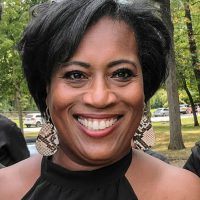
Rona Ash loves living in Carmel. She loves her home, her neighborhood, her friends, the parks and so much more.
Growing up in Indianapolis, that’s not something she ever thought she’d say.
“When I grew up, you didn’t pass 96th Street. It was a known fact: You’ll get a ticket or arrested,” Ash said. “It had such a bad reputation, but my husband is very convincing and very forward thinking. He was like, ‘How can you judge a whole community by things you knew growing up?’”
So, in 2004, the Ash family moved to Carmel, just in time for their oldest child to start first grade at College Wood Elementary in the school’s first year at its current location. She described Carmel as being “like Mayberry,” the friendly little fictional town made famous by the “Andy Griffith Show,” where everyone knew each other and was always willing to lend a hand.
In many ways, Carmel is still like that, Ash said, but it didn’t take long for her to question the family’s move north.
“The first years were challenging. I cried and I wanted to send our kids back to Washington Township,” Ash said. “I didn’t realize my children would be integrating a school. It took me so far back to what I had experienced as a young child, where I was one of a handful (of Black students) and there were no teachers, administrators, cafeteria workers or others in the school that looked like me or had a background similar to mine.”
The family stayed put, despite misunderstandings with school administrators, a door-to-door solicitor telling the family to “go back to Africa” and getting pulled over frequently “for no reason,” Ash said, although she believes the Carmel Police Dept. has made improvements and increased its diversity through the years.
“There are some things I don’t like, but we’ve decided as a family the way to make things better is being here, being around, making friends and being a part of the community,” she said.
Even though her son is now 22, she still worries for him. An avid runner, he often gets up at 5 a.m. to jog through the neighborhood in a hoodie, earphones in. She cautions him to always announce his presence when approaching other people on his route.
“It terrifies you that someone might judge your child before they even understood they’re running in their neighborhood,” she said. “I’ve always had to instruct my kid, as every parent does, about appropriate behaviors in public, but even more so than other children.”
It’s a fear most local parents don’t have to consider for their own children. Ash hopes that more Carmel residents will try to understand the daily challenges that their neighbors with different backgrounds face.
“If this is truly a community that is one of the best places to live, it should be the best place for all to live,” she said. “Everyone should be able to share in that experience.”
Ti’Gre McNear: What’s the trade off?
Ti’Gre McNear and her family knew they would be in the minority when they moved to Carmel in 2008. But she had a good impression of the city, because after college, she had frequently visited a good friend who lived here without incident.
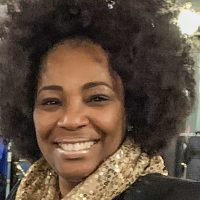
It didn’t take long, though, before she started noticing that life in Carmel was different than anyplace else she had lived. She remembers in 2008 trying to make friends at an ice cream social at her daughter’s new Carmel school and being told by another parent that she was “moving too fast.” When McNear asked what that meant, the parent told her that Carmel wasn’t ready for African Americans.
Later, another parent from that school called the Indiana Dept. of Child Services after McNear’s daughter mentioned she had received a spanking at home. And one time, she said, a Carmel police officer heading in the opposite direction pulled her over for expired plates that he couldn’t have seen when he initiated the traffic stop.
“It could’ve gone really wrong,” McNear said. “He was elevated, and I was elevated because I felt like he had racially profiled me.”
McNear said most people in Carmel have been welcoming, but she feels many residents “stay in their barriers,” forming opinions about the Black community based only on what they see and hear in the media.
“I can still go in stores in Carmel and people will look the other way or look right past me or clench their purses,” she said. “It happens to our children, to women and men, it doesn’t matter. (Other people) base their relationships with us based on the information they see in the media and the stereotypes.”
During the 12 years she’s lived in Carmel, McNear said her family members have been the only African Americans in the neighborhood. She believes not only does the city’s reputation keep Black families from moving to Carmel, but it can discourage them from being here at all.
“It’s a great place to live, but it’s at a cost,” McNear said. “We have people who will not come to visit because they’re like, ‘The police will come to get us out there.’ It’s almost like, what’s the trade off?”
Todd Crosby: Think outside of your bubble
Todd Crosby said he hasn’t experienced blatant racism during his five years in Carmel, but he often wonders about its impact on his daily life.
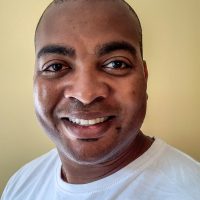
For example, one evening he and a dark-complexioned neighbor were stopped because of a flat tire during a bicycle ride when a Carmel police officer approached to ask if everything was OK. The encounter was respectful on all sides, Crosby said, but it caused him to internally question whether the officer was genuinely concerned or felt a need to investigate when he saw two people with dark complexions stopped on the side of the road.
“Personally, that comes to mind because of our environment and the history I heard about Carmel,” Crosby said.
He’s also felt disheartened by what he’s seen at his family’s church, St. Elizabeth Seton Catholic Church. Crosby isn’t Catholic, but his wife is, so they decided to attend and raise their children in that faith. The diocese suspended Seton’s former priest in July after he wrote an article disparaging leaders and supporters of the Black Lives Matter organization.
Crosby said he wonders how the church can claim to be inclusive when one of its leaders and some of his fellow parishioners took to the internet to discredit the idea that black lives matter.
“I feel like there’s a lot of deep-seated prejudices and thoughts about people of color in the white Catholic community,” Crosby said. “Why would (a Black person) want to be a part of that?”
Crosby believes race relations can improve when neighbors — whether on the same block or in the same region of the state — with different backgrounds take the time to get to know each other beyond the surface level.
“Don’t be afraid to get into conversations about our history, really get to know people and really think outside of your bubble,” he said. “That’s what we’ve done too much as Americans; we look at our immediate experience and we feel that’s the experience everyone else has.”
Adam Bray: People aren’t making these stories up
Adam Bray believes a little bit of listening by Carmel’s white community could go a long way.
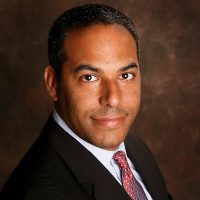
“I don’t hear a lot of that going on,” he said. “I hear a lot of defensiveness and a lot of denial of facts. People aren’t making these stories up. They’re hurting, and it would be nice to hear the majority listen and absorb what the experience is and have a little more compassion.”
A 17-year resident of Carmel, Bray said he doesn’t believe racism is more of a problem here than elsewhere in the nation. When he’s encountered it, it’s been more directed at his children than himself, although he believes most of it is unintentional.
Bray said his children have been referred to as “brown slave kid” at recess after the class read a book about a slave child, an incident he believe stems from white parents being so much in the majority they don’t feel the need to have conversations with their children about race, and from educators who only teach from the white perspective.
Bray said his children — who are biracial — have been disciplined more severely and more frequently than white students at school. When he brought up the issue, school administrators disagreed with his assessment, Bray said.
“My angle isn’t to suggest somebody involved is being racist. I don’t come to that conclusion by any means,” he said. “A lot of this is underlying. It’s really unconscious, a lot of it, not intentional. Sometimes, it’s hard to put your finger on it.”
Bray believes acknowledging that systemic racism exists is an important first step toward addressing it, but he doesn’t feel that’s a priority for many Carmel residents.
“If you wanted to live in America, you never even possibly have to see a person of color,” Bray said. “You could probably do that pretty easily in Carmel. That’s a lot where the issue stems from, denial. You’re just in your own little bubble, so it’s easy to believe whatever you wish to believe.”
Shaune Shelby: We still have this angst
Shaune Shelby knew it wouldn’t be easy to launch Carmel’s only African American church. It was a challenge even before Ebenezer Baptist Church opened the doors to its Carmel campus in 2019.
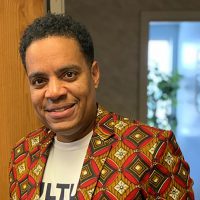
Some members of the Black community questioned whether the church could survive in Carmel, while other people asked him why Carmel needed another church with so many other options available.
“It took us a year even to find any place to begin to worship and that a commonly used space for church worship was met with obstacles,” Shelby said.
The COVID-19 pandemic led to another setback, but EBC recently began holding in-person weekly 9 a.m. services again in a new location at 12345 Old Meridian St. While the 45-minute worship service is presented in the faith tradition of a Black church, Shelby said everyone is invited to attend.
Shelby hasn’t always felt the warm welcome in his community that he strives to offer at his church. He said while people are generally friendly, he finds himself often having to explain why he expanded his ministry to Carmel.
“The first thing you get used to in a community like this is (being asked), ‘Where are you from, and what do you do for a living?’” he said.
A less-friendly encounter he’ll never forget happened soon after he moved into the community when a police officer pulled him over as he drove his young son to basketball camp on a snowy morning. He tensed when his son asked if they were in trouble as the officer approached the car. Shelby told his son he didn’t know why they had been stopped.
“People don’t realize we still have this angst and uneasiness,” he said. “Even though we’re doing nothing wrong, we get this apprehension when a police car pulls behind.”
After handing over his license and registration and what felt like a long wait, Shelby said the officer told him he initiated the early morning traffic stop because his license plate was covered in snow. The encounter ended without a citation, but Shelby said his son pointed out that other drivers with snowy license plates weren’t being pulled over.
“That’s the subtle kind of racial undertones that people of color are exposed to,” Shelby said.
Yet for many other reasons, he’s glad to call Carmel home.
“I have had many other experiences within Carmel that make me happy we chose Carmel to live in and to offer our faith tradition here,” he said.
Carmella Sparrow: Love your country and community
Carmella Sparrow isn’t afraid to confront racism when she sees it, and during her three years living in Carmel, it has brought mixed results.
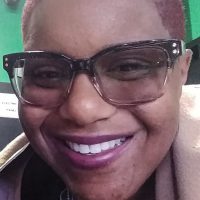
She called out the leaders at her place of worship, Northview Church, when she encountered multiple microaggressions during a discipleship walk, including other attendees making jokes about Black people’s hair and names.
“When I went to the discipleship walk, it became clear to me that this community hasn’t really done the work (of addressing racism). They’re smiling in your face, very surface level, but deeper than that the work hasn’t been done,” she said. “Black people are very keen on that. They know instantly whether someone has done the work or not.”
Church leaders at Northview — which has a mostly white congregation — took her concerns seriously, adding anti-racist policies for the discipleship walk and requiring all of its leaders to receive training on implicit bias, microaggressions and how to handle them.
Carmel Clay Schools, on the other hand, hasn’t responded as quickly to the concerns of the Black community, Sparrow said. She has worked with the principal at her children’s elementary school to present more information about African Americans and historical figures, but she has seen little progress elsewhere.
Sparrow pointed to initiatives at neighboring Hamilton Southeastern Schools, which has hired a chief equity officer, created an anti-racist policy and has put together a website to provide diversity resources.
“We see that our neighbors are doing this,” she said. “I don’t see why it’s so difficult to get this ball rolling and to get our students the resources they need.”
Sparrow described the constant weight of racism as “battle fatigue,” something no one should have to face in the place they call home.
“A lot of people feel people are fighting racism because they hate their community or country, but it’s the absolute opposite,” she said. “You love your country and community, and you want to make it that much better for everyone who lives in it. That’s why you get into this work. That’s why you try to make changes here and there, because you love your community, and you see how it can be better.”
Tishia Smith: Respect and love everyone
Like many people, Tishia Smith and her young family moved to Carmel because of the excellent schools and low crime rate. She knew they’d be in the minority as an African American family, but it wasn’t a reason to not live in the city that offered a great fit.
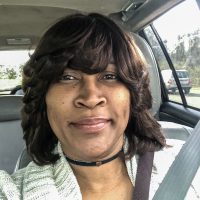
“I don’t think everything needs to be made a big issue because of the color of your skin,” she said. “My husband and I believe in teaching our children to respect and love everyone. Once you start getting into the color of skin, I just don’t think that’s a necessary factor when you’re raising children and doing business.”
Carmel has proven to be a wonderful home, Smith said, and her four kids — ages 5 to 14 — are thriving in Carmel schools. Although the family hasn’t experienced direct racism at the local level, Smith said it feels as if the national discussion of race has taken a turn in recent years.
“Those that are racist feel empowered. They no longer have to hide behind a veil, so someone who was racist 10 or 20 years ago who may not have said or acted on (racism) now feels free to be who they really are and act on it without fear of repercussion,” she said.
Residents can fight the changing narrative at the local level by calling out racism when they see it, Smith said.
“If you’re not anti-racist, you’re racist. If you’re not doing things within your power to stop the injustices, you’re going along with it implicitly,” she said. “We need more of the white community to say, ‘Hey, that’s not cool,’ (and) more of the kids within the high school that are not committing (racist acts) themselves but they see it, they need to speak up and say, ‘That’s not right.’
“It’s going to take honest, hard behavior change within the white community and in everybody.”
William and Danette Howard: Is there any progress?
Since moving from Maryland in 2014, William and Danette Howard have thoroughly enjoyed making Carmel their new home.
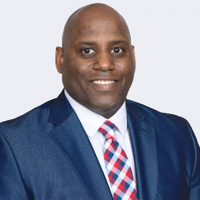
“I love our neighborhood, I love our home, and I love the fact that if we leave our garage door open accidentally, no one’s going to try to get into our property,” Danette said.
Almost everyone has made the family feel welcome, William said, at least in person. But sometimes when he goes online, he sees another side of Carmel residents in racist and hurtful remarks posted to local websites.
“Outside of social media everything seems fine, but when you go on social media you realize these are people in my neighborhood that respond this way,” he said. “It puts you in a place of doubt. There are ways that you do feel unwelcome in that sense.”
William said he’s been encouraged to see the local community march and protest in support of justice for African Americans in recent months, but he’s not convinced it will lead to real change.
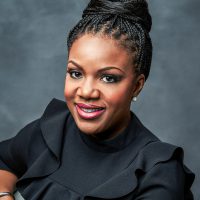
“We have a feel-good moment, people protest, everybody’s hugging and showing love, but in the end, where are the action-oriented steps? Is there any progress? Are changes made after the cameras go away? The answer has been no,” William said. “That is the frustration here in Carmel or anywhere else.”
Danette said she also was encouraged by the recent events to support racial justice, and she wants to see those types of initiatives continue.
“We are happy to be residents of Carmel, and we think there is more that can be done,” she said. “We’re willing to roll up our sleeves and do that work right alongside everyone else.”
LOCAL LEADERS RESPOND
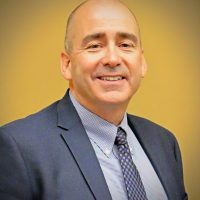
Current asked local leaders to respond to issues raised by the Black community and Carmel’s reputation regarding diversity and inclusion.
“It all starts with listening and trying to understand one another. Fighting and arguing isn’t the answer. Working together to make the world a better place is what needs to happen. My response is, ‘Sit down, let’s talk. What makes you believe that to be true? Tell me what’s happening with you or your family or students that makes you feel that way?’ That’s where the conversation starts.” – Carmel Clay Schools Supt. Michael Beresford
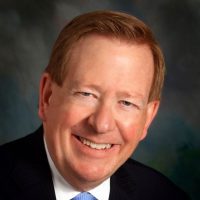
“I walk in downtown Carmel all the time and hear different languages spoken on a daily basis. It’s a good thing for a city when different cultures come together and get to know each other and exchange ideas about each other. That’s what America has always been and still is, in many ways, and that’s been the strength of our country, when people from different backgrounds come together and unite.” – Carmel Mayor Jim Brainard
“The Carmel Police Dept. is committed to excellent service to all community members – residents, visitors, and workers alike. We understand that perceptions can be reality for some people. We also know that those perceptions can sometimes be damaging and difficult to overcome. We are working hard to engage the community and reverse negative stereotypes that have been perpetuated for many years.
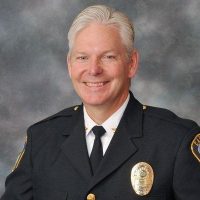
Here are some of the ways in which we are working to be transparent and project a positive perception to the community:
Ensuring that our workforce reflects the community: The Carmel Police Dept. has seen unprecedented growth over the past three years. Of the 12 newly hired officers in 2020, four are people of color.
Body-worn and in-car cameras: Officers use body-worn and in-car cameras to record all interactions with the public. Supervisor review of these videos ensures a consistent level of service to all community members.
Forward-facing policies: All of CPD’s policies are available to anyone on our website. Uses of force and citizen complaints are also available at carmelpd.com.
Traffic stop dashboard on website: We are in the process of developing a traffic stop dashboard on our website. This dashboard will show the demographics of our tickets and warnings. We have also contracted with The Dolan Consulting Group to evaluate fairness in vehicle stops. This project is in the data-collection phase. When the study is complete, the results will be shared with the public.
Community seminars: We have hosted two community seminars on the Carmel Police Dept.’s uses of force and policy. More of these seminars are being planned. These seminars include discussion and feedback on policy, training and statistics. The Carmel Police Dept. Citizens’ Academy is another outreach project which allows community members to receive presentations on the many facets of the department.
Training: The Carmel Police Dept. has always provided a high level of training in many areas of instruction to its officers. Training is a priority and includes diversity, bias, de-escalation, duty to intervene and use of force. In 2020, all employees received training on implicit bias. The 2021 training plan includes a course on interrupting racism.
The Carmel Police Dept. understands that there are community members who may have unfavorable beliefs about us based on experiences as related by other people. We invite anyone with questions or concerns to come speak with us and have an open discussion. We welcome the opportunity to be transparent.” – Carmel Police Dept. Chief Jim Barlow


